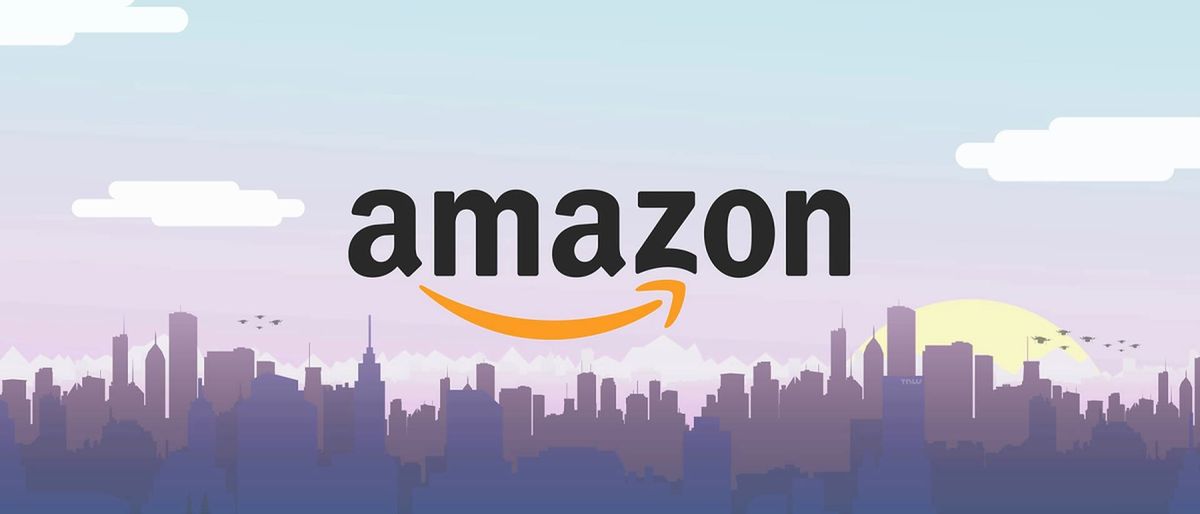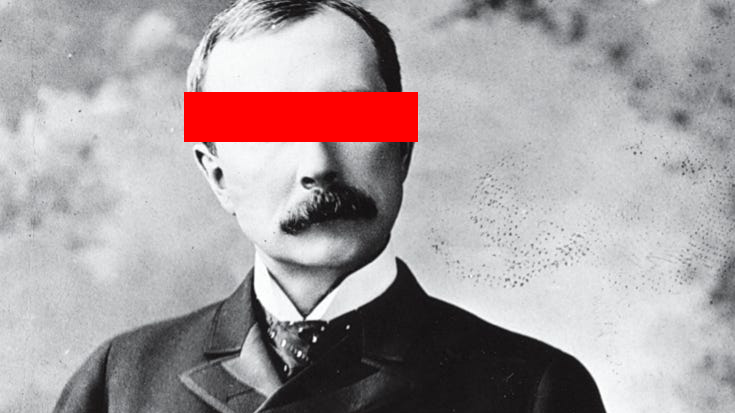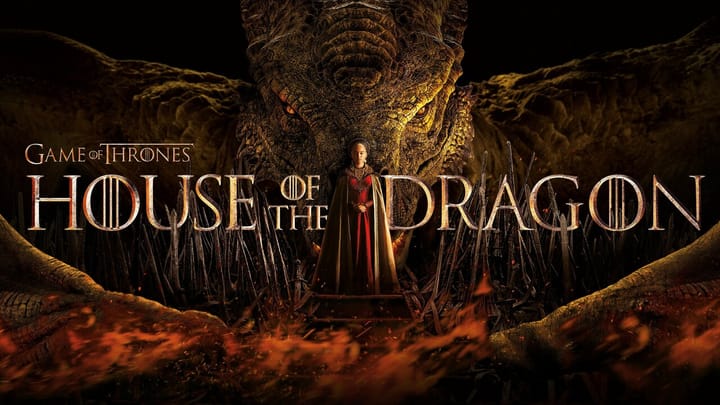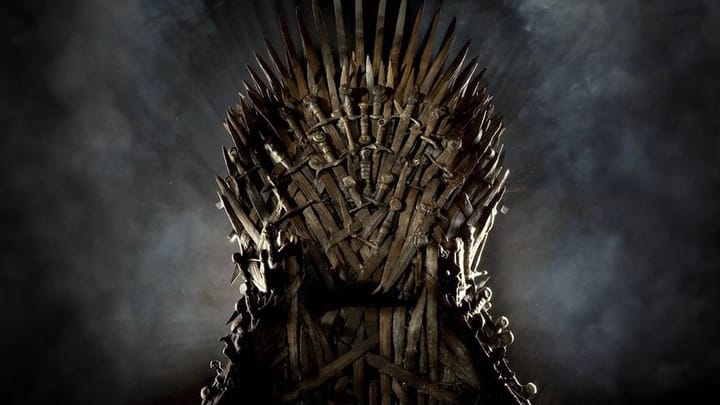I Read 4 Books on Amazon and Jeff Bezos. This is What I Learned
Focus relentlessly and passionately on the customer.

Top 5 Ideas:
- Focus on the long term.
- Focus relentlessly and passionately on the customer. One bad customer experience will undo the goodwill of hundreds of perfect ones. Begin any conversation about a new product in terms of the benefit it creates for customers. (Jeff thought about naming the business Relentless instead of Amazon.)
- Avoid powerpoint and slide presentations.
- Focus on the big decisions. Like acquisitions, investments, product lines, marketing strategy, etc. (There are only a handful of big decisions in personal life – who you're with (especially who you marry), what you do, where you live).
- Hire the right people. Only hire workaholics. There is no such thing as a work-life balance. Technical + creative; sciences + humanities. Ask candiates what their favorite books and idols are.
Key Takeaways
From The Everything Store, Invent and Wander, Working Backwards, and Amazon Unbound.
- Bezos was 31 when he started Amazon and his wife was 24.
- You MUST study the greats of your industry. Bezos studied business history and founders. He read biographies and met with founders.
- Leaders are never done learning.
- Leaders benchmark themselves and their teams against the best.
- Create a book club with the people around you. Partners, coworkers, family, and friends. You should all be on the same page.
- All Amazon executives had to read The Black Swan by Nassim Taleb.
- Bezos had a reality distortion field, high standards, and could rage at employees, just like Steve Jobs and Elon Musk.
- Slow steady progress can erode any challenge over time.
- On the internet, you can be big or you can be small, it is very hard to be medium.
- My thoughts: You need to either get venture funding and become the next Google, Facebook, or Amazon or bootstrap a niche business (could still make millions in profit). The former should lower their prices as much as possible, the latter should raise prices as much as possible.
- Be frugal. Even executives fly coach. Frugality (and other constraints) drive innovation. Focus on increasing cash flow and users. Rather than profitability. (You can make an unsustainably good offer to hook people then pull back benefits later.)
- My thought: Don’t invest in anything that doesn’t have quantifiable returns.
- Take big bets. Outsized returns often come from betting against conventional wisdom, and conventional wisdom is usually right. Given a ten percent chance of a one hundred times payoff, you should take that bet every time. But you’re still going to be wrong nine times out of ten. We all know that if you swing for the fences, you’re going to strike out a lot, but you’re also going to hit some home runs. The difference between baseball and business, however, is that baseball has a truncated outcome distribution. When you swing, no matter how well you connect with the ball, the most runs you can get is four. In business, every once in a while, when you step up to the plate, you can score one thousand runs. This long-tailed distribution of returns is why it’s important to be bold. Big winners pay for so many experiments.
- A company's success is dependent on its ability to attract and retain top engineers.
- Every anecdote from a customer matters. We research each of them because they tell us something about our metrics and processes. It’s an audit that is done for us by our customers. We treat them as precious sources of information.
- Reminds me of a few businesses that hired paid critics to criticize their products before launch.
- Create multiple teams at your company with the same goal and have them compete.
- Steal the best ideas from successful people. Bezos stole the idea of Prime day from Jack Ma. Alibaba had their own "Prime day" before Amazon in China.
- Bezos preached the wholesale embrace of technology, rapid experimentation, and optimism about the opportunities of the internet instead of despair.
- Bezos’ one constant edict: Go faster.
- Each product idea is not pitched with power points, a 6-page narrative in the style of a press release is written.
- Even well-meaning gatekeepers slow innovation. When a platform is self-service, even the improbable ideas can get tried, because there’s no expert gatekeeper ready to say, “That will never work!” And guess what—many of those improbable ideas do work, and society is the beneficiary of that diversity.
- Bezos on “wandering”: Some decisions need to be made based on intuition, not data. That’s what got Bezos to quit his comfortable finance job to go start Amazon. Everyone thought he was crazy to give up his traditional life.
- Bezos gets up early and goes to bed early. He gets 8 hours of sleep. He sets his important meetings for 10:00 am, before lunch, because his cognitive ability declines throughout the day and is “gone” by 5 pm.
- Only deliberate on irreversible, highly consequential decisions. For everything else, just go with your immediate decision because for 99% of decisions, if it’s the wrong one, you can just switch to the other choice.
- When it comes to competition, you don’t want to play on a level playing field. The advantage that small companies have is nimbleness and experimentation. Analyze your competition to see where you have an advantage.
- Put your energy into things that will not change. Study evergreen subjects: Math, Statistics, Physics, Human nature. Think: What will your customers want 10 years from now?
- "All my best decisions in business and in life have been made with heart, intuition, and guts, not analysis." — Jeff Bezos
- Teams should be small. Teams should be able to be fed with two pizzas. They should be able to get their work done without communicating with other teams. They should be able to work without having to get approval from higher management. They should only work on ONE thing.
The Everything Store
- Regret minimization Framework. Before you take an action, think: Would you regret doing it not doing it when you're 80? Bezos knew he wouldn't regret trying to make an internet business. But he knew that not trying to make an internet business would haunt him every day.
- You MUST study the greats of your industry. Bezos studied business history and founders. He read biographies and met with founders.
- Be very secretive with products and private business information. Bezos was very secretive (like Jobs and Apple). Beta testers were employees.
- Alexa was named by Bezos himself after the library of Alexandria.
- There are no limits. The limits are in your mind. Remove them to get anything you want in life.
- Bezos loved the idea of the non-stop workday. He kept a rolled-up sleeping bag in his office. His coworker said that it may have been a prop as much as it was useful.
- Bezos went through the dictionary to find “Amazon”. The largest river and the largest book store.
- The website was up (but very rudimentary) in 1995.
- Bezos had extravagant vacations/celebrations for key employee anniversary dates. Like Caplan's 4 year anniversary of working at Amazon.
- Be bold.
- Get an experienced COO. This allows the CEO to be the visionary: new products, public relations, outside interests, and family.
- Read Good to Great by Jim Collins
- Web activity had grown that year by 230,000%. Things just don't grow that fast Bezos said. It's highly unusual and that started me thinking about what kind of business might make sense in the context of that growth.
- Jeff was always a big believer that disruptive small companies could triumph.
- I think you are underestimating the degree to which established companies will find it hard to be nimble or to focus attention on a new channel.
- Slow steady progress can erode any challenge over time.
- Bezos is not tethered by conventional thinking. What is amazing to me is that he is bound only by the laws of physics. He can’t change those. Everything else he views as open to discussion.
- Every anecdote from a customer matters. We research each of them because they tell us something about our metrics and processes. It’s an audit that is done for us by our customers. We treat them as precious sources of information.
- Reminds me of a few businesses that hired paid critics to criticize their products before launch.
Working Backwards
- The 'Working Backwards' approach involves identifying the desired end-customer experience as the starting point and then determining the necessary steps and processes required to achieve it.
- At Amazon, new products are not pitched traditionally, instead, a 6-page press release and FAQ are written before the product even exists.
- The PR is a few paragraphs and takes up one page with visuals. The FAQ should be 5 pages or less. Longer is not necessarily better.
- You have to describe features, pricing, how it would work, and why consumers would want it.
- It has to have a demo/mock-up/visual that shows what the product will look like and how it will work.
- Simple ideas can be very effective if applied relentlessly.
- Bezos (and Jobs) did not spend his time flying around to conferences like many other CEOs. He worked diligently on internal company issues 95% of the time.
- In the earlier days (early 2000s) Bezos wrote the job descriptions himself and interviewed the candidates himself.
- One bad customer experience will undo the goodwill of hundreds of perfect ones.
- Leaders are never done learning.
- Leaders benchmark themselves and their teams against the best.
- Bureaucracy builds naturally. Make sure to remove it periodically. Try to fix the root of the problem, not put another layer of bureaucracy to fix it.
- Velocity (speed and direction) matters in business. Move fast towards the right goals.
- Managers need to identify the ONE thing that will create the most value for the company and only focus on that.
- Businesses need LESS communication, not more. When you remove meetings and distracting messages, it allows builders to put their heads down and work.
- Teams should be small. Teams should be able to be fed with two pizzas. They should be able to get their work done without communicating with other teams. They should be able to work without having to get approval from higher management. They should only work on ONE thing.
- Before meetings, there is a 6-page report that everyone must read at the beginning. That’s why there’s a 20-minute silence at the beginning of every Amazon meeting. Your presentation software should be Microsoft Word, not PowerPoint.
- Bezos assumes every sentence he reads is wrong until he can prove otherwise. He challenges the content of the sentence, not the motive of the writer.
- Bezos came up with the idea for the Echo himself in 2004 (Echo wasn’t a product until 2014). Another employee came up with the Kindle idea at the same meeting—E-ink technology had recently been invented.
- Failure and invention are inseparable twins.
- An experiment inherently carries the risk of failure. You need to experiment and if you know it will be successful in advance, it’s not an experiment.
- Bezos and Steve Jobs have a meeting. Apple had just developed its first Windows application. Jobs told Bezos that he thought it was the best app ever developed on Windows. The app was iTunes. Jobs said that CDs would go away like cassette tapes and that digital was the future.
- Bezos did not try to copy Jobs and make an MP3 player like the iPod or music software like iTunes, instead he synthesized the thought process behind those concepts—digitized media—and applied it to books. He made the Kindle.
- Bezos also focused heavily on how and who. How to organize the team and who the right leader for the team was.
- You can either invent or copy. I choose to invent.
- Reminds me of Peter Thiel’s Zero to One. Going 0-1 is making something new. Going 1-n is copying something that already exists.
- Every product must offer a truly unique value proposition for the customer.
- Digital versions of products need to be rethought. You can’t just copy the physical version and make it digital (you could, but it wouldn’t be taking advantage of the unique benefits of digital).
- Kindle was Amazon’s first hardware product.
Invent and Wander
Walter Isaacson thinks these are Bezos' top 5 ideas:
- Focus on the long term.
- Focus relentlessly and passionately on the customer. (Jeff thought about naming the business Relentless instead of Amazon)
- Avoid powerpoint and slide presentations.
- Focus on the big decisions. Like acquisitions, investments, product lines, marketing strategy, etc. (There are only a handful of big decisions in personal life--who you're with (especially who you marry), what you do, where you live).
- Hire the right people.
- My thoughts: Technical + creative; sciences + humanities. Good inputs. Ask what their favorite books are. Ask who their idols are.
- Get expenses as low as possible.
- Cash flow > GAAP accounting
- Bezos believed in the “land rush” metaphor of the internet.
- On the internet, you can be big or you can be small, it is very hard to be medium.
- My thoughts: You need to either get venture funding and become the next Google, Facebook, or Amazon or bootstrap a niche business (could still make millions in profit). The former should lower their prices as much as possible, the latter should raise prices as much as possible.
- Bezos thought that computers and phones promote information snacking—watching 5-minute educational videos—which is bad. He wanted to promote long-form education (reading books) with the Kindle. He thought of reading as forced meditation.
- My thought: Don’t invest in anything that doesn’t have quantifiable returns.
- Even well-meaning gatekeepers slow innovation. When a platform is self-service, even the improbable ideas can get tried, because there’s no expert gatekeeper ready to say, “That will never work!” And guess what—many of those improbable ideas do work, and society is the beneficiary of that diversity.
- Walter Isaacson thinks Jeff Bezos is the genius of our generation: I am often asked who, of the people living today, I would consider to be in the same league as those I have written about as a biographer: Leonardo da Vinci, Benjamin Franklin, Ada Lovelace, Steve Jobs, and Albert Einstein. All were very smart. But that’s not what made them special. Smart people are a dime a dozen and often don’t amount to much. What counts is being creative and imaginative. That’s what makes someone a true innovator. And that’s why my answer to the question is Jeff Bezos.
- Take big bets. Outsized returns often come from betting against conventional wisdom, and conventional wisdom is usually right. Given a ten percent chance of a one hundred times payoff, you should take that bet every time. But you’re still going to be wrong nine times out of ten. We all know that if you swing for the fences, you’re going to strike out a lot, but you’re also going to hit some home runs. The difference between baseball and business, however, is that baseball has a truncated outcome distribution. When you swing, no matter how well you connect with the ball, the most runs you can get is four. In business, every once in a while, when you step up to the plate, you can score one thousand runs. This long-tailed distribution of returns is why it’s important to be bold. Big winners pay for so many experiments.
- Always update and improve your process. The “process” is the steps you take to create the product. It can always be improved.
- Bezos on “wandering”: Some decisions need to be made based on intuition, not data. That’s what got Bezos to quit his comfortable finance job to go start Amazon. Everyone thought he was crazy to give up his traditional life.
- Only deliberate on irreversible, highly consequential decisions. For everything else, just go with your immediate decision because for 99% of decisions, if it’s the wrong one, you can just switch to the other choice.
- When it comes to competition, you don’t want to play on a level playing field. The advantage that small companies have is nimbleness and experimentation. Analyze your competition to see where you have an advantage.
- Put your energy into things that will not change. Study evergreen subjects: Math, Statistics, Physics, Human nature.
- Bezos always wanted to be an inventor.
Amazon Unbound
- Create multiple teams at your company with the same goal and have them compete.
- Don't aim and then shoot, shoot, shoot, shoot and then aim.
- Amazon made AWS and hid the profits from wall street for a decade (how? I think you only have to report once it makes a certain amount-or a certain % of revenue?). They wanted to keep their new money printer a secret for as long as possible. Give out information freely (except the top 1% info).
- Oh, I think they hid the revenue by putting it under another revenue section (advertising). They did that so that other businesses like Google wouldn't figure out how lucrative a cloud computing business was.
- Steal the best ideas from successful people. Bezos stole the idea of Prime day from Jack Ma. Alibaba had their own "Prime day" before Amazon in China.
- When you acquire a company, keep the management team.
- Create a book club with the people around you. Partners, coworkers, family, and friends. You should all be on the same page.
- Begin any conversation about a new product in terms of the benefit it creates for customers.
- Bezos preached the wholesale embrace of technology, rapid experimentation, and optimism about the opportunities of the internet instead of despair.
- Bezos’ one constant edict: Go faster.
- Pay higher wages to attract better talent.



Comments ()